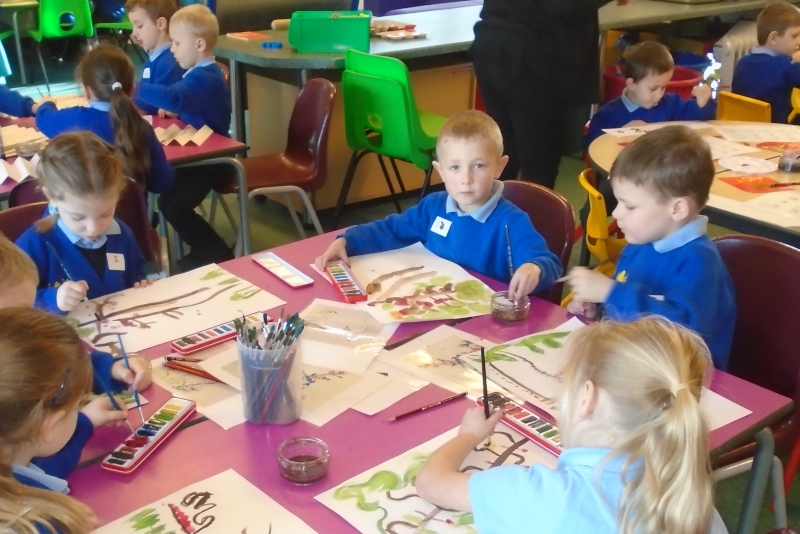Music Curriculum


Music Rationale
At Mrs. Bland’s Infant and Nursery School, our approach to music education is based around the idea that it should be enjoyable and captivating for everyone involved. We hold the belief that each child possesses musical ability. We view music as a force that impacts every aspect of our lives, regardless of our circumstances.
Music and song are used in daily teaching in a cross-curricular manner, weekly singing assemblies, and subject specific lessons taught by a specialist. Later, the children are invited to join the school choir.
As the children progress, they should learn how music can reflect and shape our views of culture, creativity and how it can represent our history, and personal memories, and be excited about how it can develop into our future. They can listen and enjoy; they can play, and they can create though-out their time learning.
Every child is a musician, and every child can learn and respond to music as it is a universal language.
The Curriculum
At Mrs. Bland’s Infant and Nursery School, we provide children with access to high quality music lessons which are taught by a subject specialist. They listen and respond to music from different genres and cultures, and once in key stage one, the music scheme corresponds to a social theme with a musical spotlight.
The music curriculum is based upon the award-winning scheme, Charanga and this is used by over 70,000 teachers and in over 57% of UK primary schools. This scheme follows the governments non-statutory guidance for the music curriculum released in March 2021. Our link junior school, Garland, also follows this scheme, giving continuity, allowing the children to build on prior learning as they grow and develop.
The Charanga scheme is fun, holistic and has a differentiated, spiral approach to musical teaching and learning and applies the latest pedagogical thinking in an accessible way for children to access. The children are allowed access to musical instruments regularly from a young age. Within each unit, students revisit existing knowledge and skills and then build upon them and extend them incrementally in order to consolidate and develop learning. (www.charanga.com)
In the Early Years, the children sing nursery rhymes and action songs daily which link to their topics. Percussion instruments are introduced at an early age to help them learn about pulse and rhythm, and they are allowed access to the instruments during their free time to explore them with independence. As children begin to join in with words and actions, they are developing their attention and listening, and very early on, they begin to anticipate words and actions in favourite songs. (This opens up the DFE’s Development Matters as a pdf: Development Matters - Non-statutory curriculum guidance for the early years foundation stage (publishing.service.gov.uk)
Aims:
- All pupils to perform, listen to, review and evaluate music across a range of historical periods, genres, styles and traditions, including the works of great and upcoming composers and musicians.
- All pupils will learn to sing and to use their voices expressively and creatively by singing songs and speaking chants and rhymes.
- All pupils will begin to learn to use some tuned and untuned musical instruments and this will develop further as they move to the junior school.
- All pupils will experiment with, create, select and combine sounds using the interrelated dimensions of pitch, duration, dynamics, tempo, timbre, texture and start to learn some appropriate musical notations.
Intent:
To engage the children in learning that is memorable, which encourages, stretches and supports them on their musical journey to realise their full potential.
- To make music accessible to all
Implementation
- Subject specialist will teach the main lessons of music which are sequenced carefully and provides small steps of learning which build on prior learning experiences and allow for consolidation and stretch.
- The lessons will provide rich, interactive and motivational learning opportunities.
- Understand that there is no ceiling to learning, and that the teachers will have high expectations for all children.
Impact
- Music will help children develop a sense of belonging to the school and community.
- Children will make connections in their learning, with prior learning and with cross-curricular links.
- Children will experience success, no matter what their starting points.
- Children will develop resilience and confidence in their musical learning.
- Children will build positive relationships with others, both children and adult by learning and connecting through music.
Assessment and Monitoring.
Music is assessed on an ever developing spiral, based on knowledge and skills, musical progression, musical elements and styles which are covered in each year group, and the planning revisits and builds on prior learning.

You can view our long term overview for Music by clicking here
You can view our Music element progression chart by clicking here

